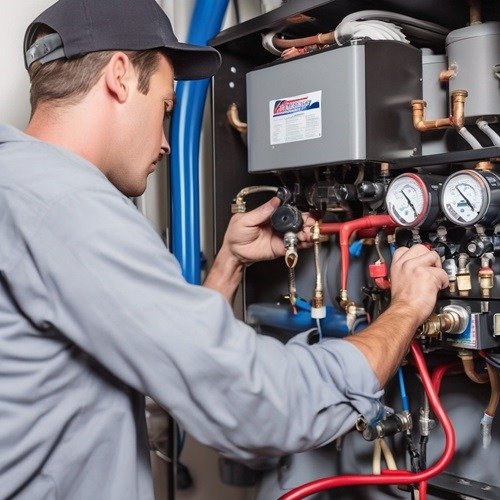The Ultimate Guide to Finding the Perfect Boiler Installer in Encinitas CA
Looking to install a boiler in Encinitas, CA? You’ve come to the right place. With our expertise and experience, we can guide you through the process of choosing the perfect boiler for your space.
We’ll help you consider all the factors, from efficiency to size, to ensure you make the best decision.
And don’t worry about finding a reputable boiler installation service in Encinitas, we’ve got you covered.
Get ready to enjoy the benefits of a well-installed and maintained boiler in your home.
Benefits of Boiler Installation in Encinitas
You will experience numerous benefits from boiler installation in Encinitas.
Installing a boiler in your home or business can provide you with a reliable and efficient heating system. With a boiler, you can enjoy consistent warmth throughout your space, even during the coldest months. The radiant heat produced by a boiler system is known for its comfort and even distribution.
Additionally, boilers are highly efficient, converting fuel into heat with minimal waste. This can result in lower energy bills and reduced carbon emissions. Boiler installation also offers the advantage of flexibility, as boilers can be used for both heating and hot water needs.

Factors to Consider When Choosing a Boiler
When choosing a boiler, it is important to consider several factors. The right boiler can provide efficient heating for your home or business while also saving you money on energy bills. To help you make an informed decision, here are some key factors to consider:
| Factor | Description |
|---|---|
| Fuel Type | Determine which fuel type is readily available and cost-effective in your area. Options include natural gas, oil, propane, or electric. |
| Size | Ensure that the boiler is the right size for your heating needs. A professional can calculate the required size based on factors such as square footage and insulation levels. |
| Efficiency | Look for a boiler with a high AFUE (Annual Fuel Utilization Efficiency) rating. This indicates how efficiently the boiler converts fuel into heat. |
| Venting Requirements | Consider the venting options available for the boiler. Some models require specific venting systems, so it’s important to ensure compatibility. |
| Cost | Factor in the initial cost of the boiler, as well as installation and maintenance costs. While it’s important to stay within budget, prioritize quality and efficiency over price alone. |
Finding the Right Size Boiler for Your Space
To find the right size boiler for your space, consider the square footage and insulation levels of your home or business. This will ensure that your boiler is able to effectively heat the entire area without wasting energy or overheating the space.
Here are some important factors to keep in mind:
- Square footage: Calculate the total square footage of the area you want to heat. This will give you a rough estimate of the boiler size you need.
- Insulation levels: Take into account the insulation levels of your space. Well-insulated areas require less heating power compared to spaces with poor insulation.
Selecting a Reputable Boiler Installation Service
When choosing a reputable boiler installation service, it’s important to research and compare different companies to ensure you find the best option for your needs. Installing a boiler requires expertise and precision, so you want to make sure you hire a company that is knowledgeable and experienced in this field.
Maintaining and Troubleshooting Your Boiler
You can ensure the efficient operation of your boiler by regularly maintaining and troubleshooting it. Proper maintenance and timely troubleshooting can help prevent costly repairs and extend the lifespan of your boiler.
Here are some essential maintenance tips to keep your boiler running smoothly:
- Schedule regular professional inspections to identify and address any potential issues.
- Clean or replace the filters regularly to ensure proper airflow and prevent clogs.
- Check the pressure and water levels regularly and adjust as needed.
When troubleshooting your boiler, keep the following in mind:
- Check for any error codes or warning lights on the control panel.
- Inspect the pilot light to ensure it’s lit and the flame is blue.
- Listen for unusual noises or vibrations that could indicate a problem.
About Us
First Service Pros offer fast, reliable home services for installation or repair, HVAC, electrician and plumbing services.
Our technicians have long experience of dealing with most common home services issues so they can save you time and money diagnosing problems and issues before they become a major concern for you.
With our wide range of home service professionals our teams can manage all your home service repair and installation needs.
Pages
Follow us
Facebook
San Diego, CA 92127
United States
Call Us Now: 844-658-4510
© 2026 By First Service Pros
About Us
First Service Pros for heating & air conditioning offer fast, reliable HVAC repair and installation service in Encinitas.
Our technicians have long experience of dealing with heating and cooling services and issues so they can save you time and money diagnosing problems and issues before they become a major concern for you.
Contact
- First Service Pros
- Serving San Diego County, California
- Phone: +1-844-658-4510
DISCLAIMER This site is designed to assist homeowners in connecting with local heating and cooling service contractors. All heating and cooling contractors are independent and this site does not warrant or guarantee any work performed. It is the responsibility of the homeowner to verify that the hired heating and cooling service contractor furnishes the necessary license and insurance required for the work being performed. All persons depicted in a photo or video may be actors or models and not contractors listed on this site.

